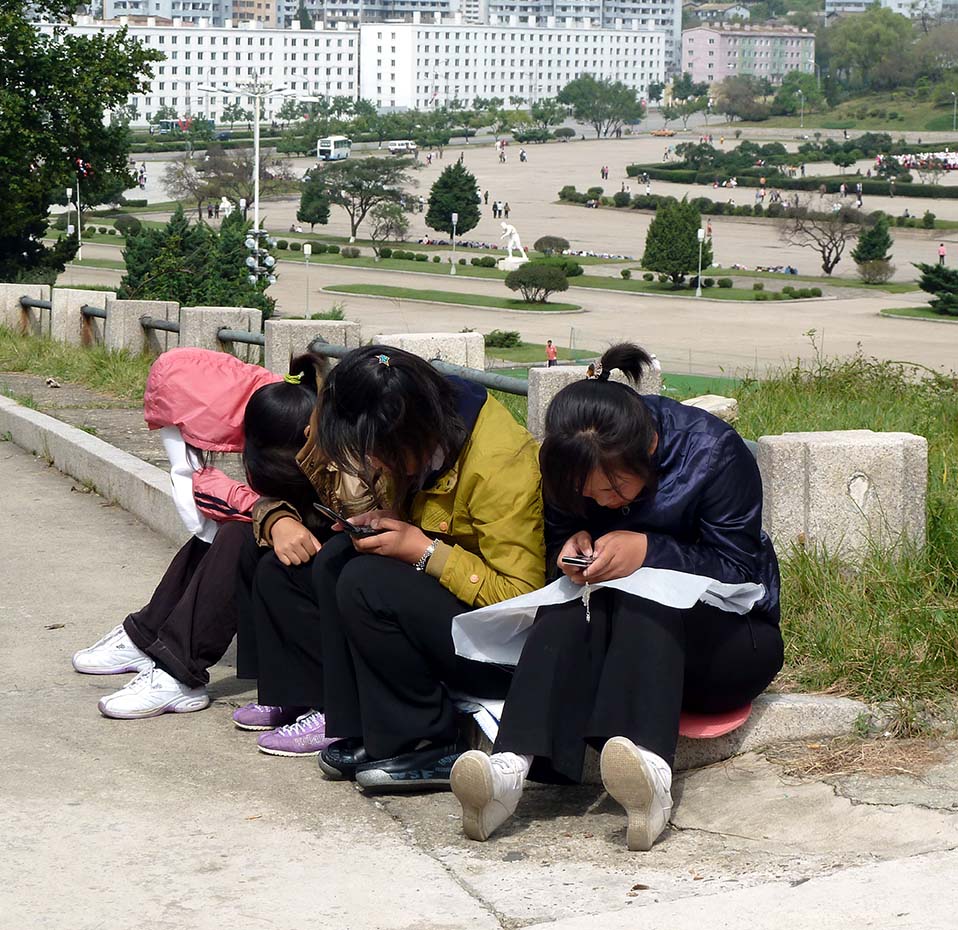
Empowering North Koreans as Part of Trump’s North Korea Policy
Commentary on Beyond Parallel’s “A View Inside North Korea”
The outgoing Obama administration advised Donald Trump to consider North Korea’s growing nuclear threat as his number one foreign policy priority. Despite Trump’s campaign talking points about downgrading the U.S.-ROK alliance, withdrawing U.S. troops from the peninsula and engaging North Korea by having a burger with Kim Jong-un—which were all music to the regime’s ears—recent events indicate that the three-week-old administration is singing a different tune.
The purpose of Defense Secretary James “Mad Dog” Mattis’s three-day trip to South Korea and Japan in early February seems to be to reassure these two U.S. allies in the Pacific theater that the United States is not going anywhere. He reassured his counterpart of America’s commitment to the 64-year-old U.S.-ROK alliance, its continued coverage under the U.S. nuclear umbrella, and its promise to meet a North Korean intercontinental ballistic missile (ICBM) attack with “an effective and overwhelming response.” Furthermore, the allies spoke about reaffirming South Korea’s decision to purchase the antiballistic missile system THAAD (Terminal High Altitude Area Defense) to deter North Korea’s missile capabilities.
Whether or not the president’s tweet from last month in response to North Korea’s ICBM threat was an indication of the United States drawing a red line against North Korea, it is clear that the country’s position on North Korea vis-à-vis its relationship with South Korea has not changed from Obama’s administration just yet.

Experts estimate there are now around 3 million cell phone users in North Korea
Although news about Trump’s tweets and nascent policies on North Korea continue to unfurl and elicit analyses from experts, one thing stands resoundingly clear: President Trump’s North Korea policy must include considerations about empowering the North Korean people. I understand that the president wants to put America first and not go on a global democracy crusade to evangelize the gospel of human rights. However, I believe that it is especially within this framework of protecting America’s interests that empowering North Koreans is a wise policy to pursue. An efficient, no-boots-on-the-ground idea is to ramp up the support for sending foreign information and media into North Korea for its citizens to consume.
[E]mpowering North Koreans through information campaigns is a cost-effective policy and the best bet for sparking endogenously induced positive and sustainable changes within the country.
Information campaigns have been around for hundreds of years (some argue since biblical times) and were of particular import during the Cold War. This is a no-brainer, low-hanging fruit idea that Trump’s administration must consider and implement. I forward four main justifications for this argument.
First, empowering North Koreans through information and soft power recognizes their inherent humanity and provides them with real information about their country and the world outside their country’s borders. The 24 million people living within this nuclear-armed, information blockade suffer at the hands of one of the worst human rights violators in modern history. According to South Korea’s Ministry of Unification, Kim Jong-un recently sacked his Minister of State Security Kim Won-hong, who heads the notorious “secret police” in charge of the country’s prison camp system, internal surveillance, and counterespionage operations abroad. If this is indeed true, it’s clear that Minister Kim will quickly be replaced by someone even more ruthless against North Korean citizens as a show of his loyalty to the leader.
A U.S.-centric, pragmatic corollary to this first argument is that foreign information campaigns can include information that counters asinine North Korean propaganda about the “Imperialist United States” that is ready to wage war on North Korea any day now. Information campaigns can start to convince ordinary citizens that they actually have allies and even advocates for their human rights in the United States and other countries.
Second, empowering North Koreans through information campaigns is a cost-effective policy and the best bet for sparking endogenously induced positive and sustainable changes within the country. Citizens in any country, including North Korea, are the most invested stakeholders in a positive future for their country. Therefore, by informing citizens of world history and current events, their rights, entertainment, and so on, North Koreans can break out of the singular, collective narrative that the government has imposed on them (some call this brainwashing) and start to think about—and eventually act on—what they want for their future.
Third, soft power campaigns are not a mutually exclusive policy to a hard security policy centered on addressing North Korea’s nuclear threat. Make no mistake: national and regional security concerns will always trump human rights concerns, especially the rights of those in a rogue nation. However, it is absolutely possible—and necessary—that both soft and hard security policies are pursued in concert.

Young North Korean women using cellphones in Pyongyang
Last, the U.S. government certainly does not have to go at it alone. It can and should engage civil society actors—both U.S.-based and international entities—and other governments to collectively marshal resources and ideas to send information into North Korea.
North Korea’s Achilles’ heel is for its citizens to access foreign information, and consequently the regime lashes out when governments attempt to broadcast into its country. Such prickly reactions from the otherwise unresponsive government imply how effective the regime views the potential of this phenomenon to undermine its power. Trump’s administration should finally pull the levers to flood this country with foreign media and information to serve the interests of both North Korean citizens and the United States.

[carousel-horizontal-posts-content-slider-pro id='113']